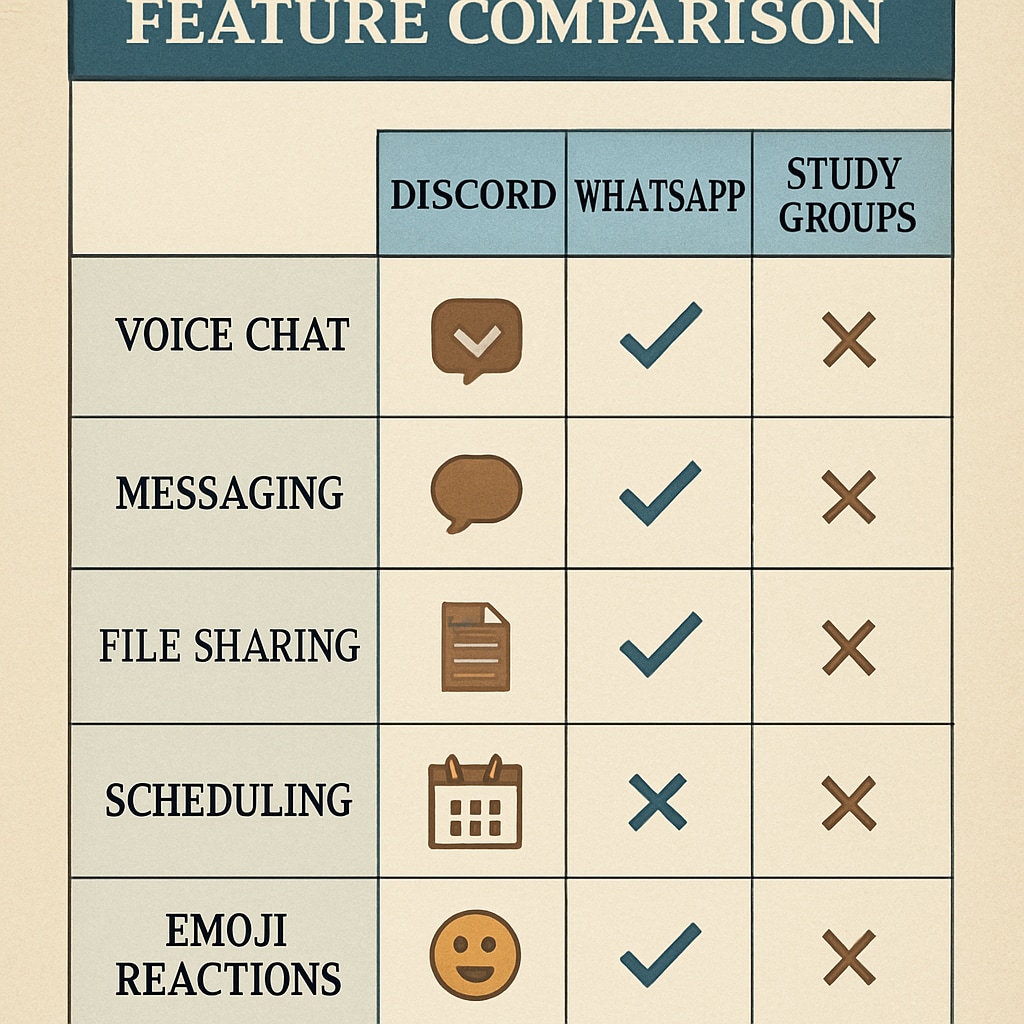Study groups, Discord communities, and WhatsApp groups have revolutionized how K12 students learn in today’s digital age. These platforms provide accessible spaces for knowledge sharing, peer support, and collaborative problem-solving. According to research from Wikipedia’s collaborative learning page, students who participate in group learning activities demonstrate 20-30% better retention than those studying alone.
Benefits of Digital Study Communities
Modern learning groups offer three key advantages:
- 24/7 Accessibility: Unlike physical study sessions, digital groups allow students to ask questions anytime
- Resource Sharing: Members can instantly exchange notes, videos, and helpful links
- Diverse Perspectives: Groups often include students from different schools or regions

Choosing the Right Platform for Group Learning
Each platform serves different needs:
- Discord communities: Ideal for subject-specific channels and real-time discussions
- WhatsApp groups: Perfect for quick updates and file sharing among classmates
- Traditional study groups: Valuable for in-depth project collaboration
The Encyclopedia Britannica’s education section emphasizes that matching tools to learning objectives significantly impacts outcomes.

Best Practices for Effective Group Learning
To maximize benefits:
- Establish clear group rules and moderation
- Schedule regular study sessions or topic discussions
- Encourage active participation from all members
- Use dedicated channels or threads for different subjects
As a result, students who actively engage in these communities often report higher motivation and better understanding of complex concepts. Therefore, educators and parents should encourage participation while guiding students toward productive digital learning habits.


